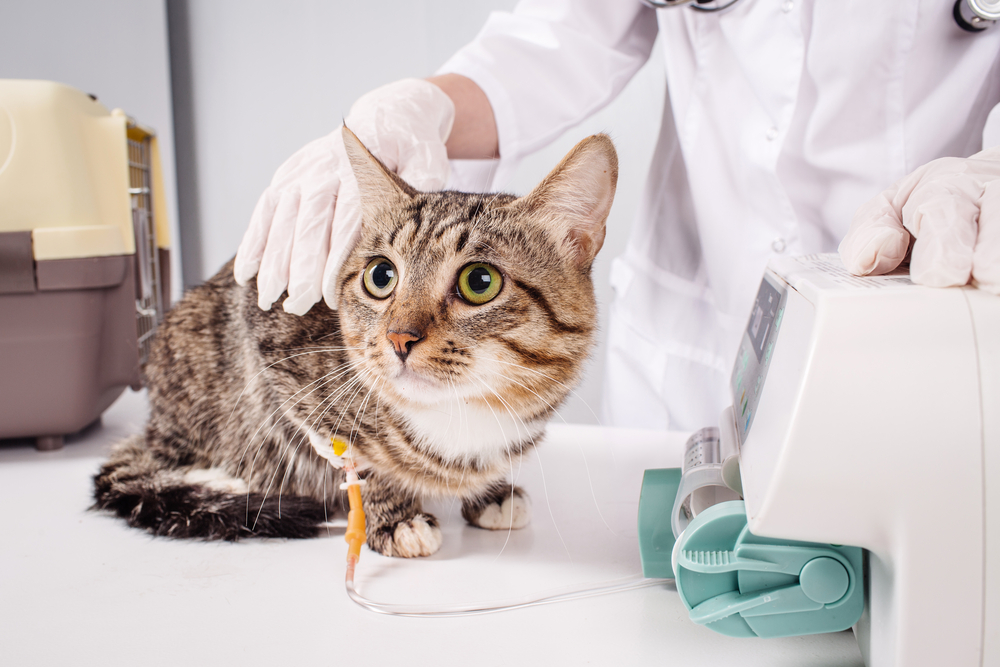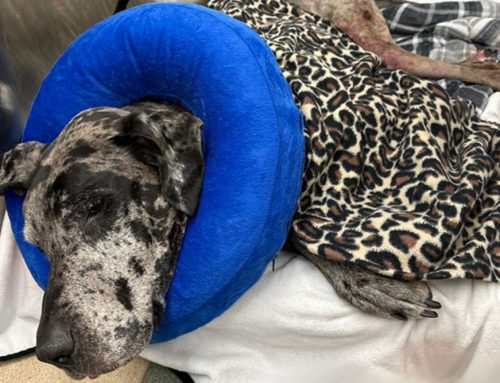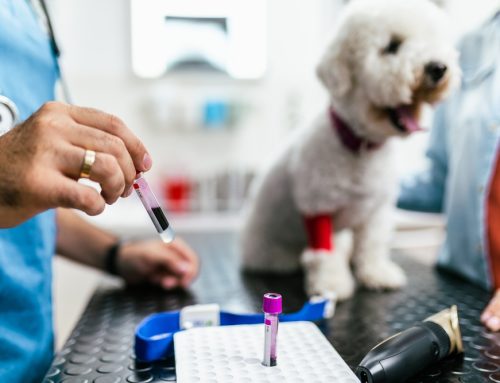Pancreatitis is a challenging inflammatory condition that affects cats and dogs and can be acute (i.e., sudden) or chronic (i.e., low-grade, persistent). Without prompt veterinary care, this complicated, sometimes confusing disorder can lead to serious health complications such as diabetes mellitus and digestive disorders.
If your Marcy Veterinary Clinic veterinarian has diagnosed your pet with or at risk for pancreatitis, here’s what you need to know to help your pet.
Pancreatitis in pets explained
The pancreas is a small organ located on the right side of your pet’s abdomen near the stomach. The organ is small and unimpressive but is responsible for two key body functions—producing and releasing digestive enzymes to help break down food and producing insulin and glucagon, the hormones that regulate blood sugar.
When the pancreas is inflamed, digestive enzymes leak out through swollen and irritated tissue and escape into the abdominal cavity. When no food is present, the enzymes begin to digest surrounding tissues, including the liver, intestines, and the pancreas itself. This causes excruciating pain and serious illness and requires immediate veterinary attention. Severe pancreatitis can be a life-threatening emergency in dogs and cats.
Acute versus chronic pancreatitis in pets
Acute pancreatitis is rapid onset and clinical signs are obvious. Pets who recover from acute pancreatitis may develop chronic pancreatitis. Many chronically affected pets—especially cats—show only mild signs or are completely asymptomatic. Chronic pancreatitis can be mistaken for or coexist with other conditions and may go undiagnosed for months or years. Pets whose chronic pancreatitis is not being treated or managed are vulnerable to acute episodes or flares (i.e., acute-on-chronic pancreatitis). Secondary complications, such as diabetes and exocrine pancreatic insufficiency (EPI), can also occur as chronic inflammation, damage, and deterioration affect the pancreatic tissue.
Pancreatitis signs in pets
Acute pancreatitis can range from mild to severe with signs that include:
- Appetite loss
- Lethargy
- Abdominal pain
- Nausea
- Weakness
- Vomiting
- Diarrhea
Affected dogs may try to relieve their pain by standing in a play bow or praying position, with their forelimbs on the ground and their hind end elevated.
Pets with chronic pancreatitis may show no visible signs, but their appetite may fluctuate and they may have intermittent vomiting or diarrhea.
Pancreatitis causes and risk factors for pets
Unfortunately, the reason why pets develop pancreatitis is poorly understood. Although consuming high fat or unfamiliar foods (e.g., getting into the garbage, stealing something from the counter) can be a common acute pancreatitis trigger for dogs, this is not always the case.
Other proposed but unconfirmed causes or triggers include:
- Genetics — Some breeds have an increased risk.
- Medication — Steroid use may damage pancreatic tissue.
- Blunt trauma — Direct impact to the abdomen, such as a long fall or being hit by a car, may permanently injure the pancreas.
- Pre-existing conditions — Other inflammatory conditions can contribute to pancreatitis and complicate diagnosis.
Pancreatitis treatment and long-term management for pets

Treatment will vary depending on your pet’s condition, clinical signs, pain level, and health history. Pets with severe acute pancreatitis signs and acute-on-chronic pancreatitis require immediate hospitalization and aggressive therapies to address their pain, dehydration, clinical signs (e.g., nausea, vomiting), and to manage any additional conditions or underlying causes. Withholding and then gradually reintroducing food as the pancreas recovers may help some pets.
Chronic pancreatitis is often managed through nutrition. Feeding a low-fat, easily digestible diet can ease the pancreas’ workload and reduce inflammatory risk. Medications may be prescribed on an as-needed basis. Pets with chronic pancreatitis should be closely monitored for behavior changes, which may indicate an impending flare-up. In addition, diligent and successful management of other health issues can potentially reduce the likelihood for future pancreatitis attacks.
In many ways, pancreatitis in pets is still a mystery—but we know that avoiding high-fat foods and prompt intervention are key to ensuring a positive outcome and minimizing long-term complications. With increased owner awareness, education, and vigilance, the Marcy Veterinary Clinic team hopes more pet owners can recognize their pet’s distress and seek prompt veterinary care.
Is your pet experiencing pancreatitis signs or struggling with repeated flares? Contact our Marcy Veterinary Clinic team.








Leave A Comment